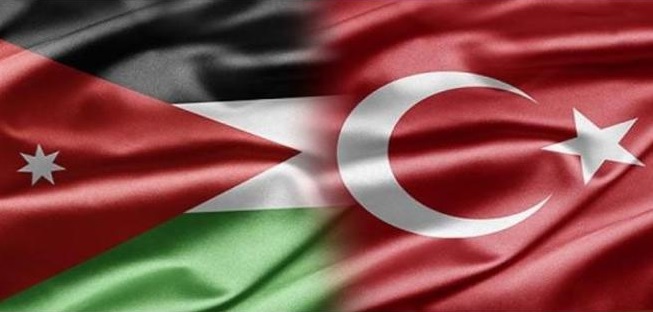

AlAnbat - Amman - Alaa Alaan
"The Ministry of Industry and Trade will examine the decision to suspend the free trade agreement with Turkey," he said, pointing out that the Ministry of Industry and Trade will discuss the decision to suspend the free trade agreement with Turkey, pointing out that 90% of the garments are imported and 50% are from China. There have been several contacts with the ministry recently and there is a serious talk regarding the study of the decision to freeze again in a way that preserves the interests of both parties. Qawasmi said that there is a Jordanian desire to reconsider the decision to suspend the trade agreement with Turkey, without giving up the Jordanian conditions related to technical support, simplifying the rules of origin, amending the trade balance and facilitating the entry of Jordanian goods into Turkey. The council of ministers under the government of former Prime Minister Hani al-Mulqi decided to suspend the partnership agreement to establish a free trade area between Jordan and Turkey, based on the recommendation of the Minister of Industry, Trade and Supply at the time, while the Minister of Industry, Trade and Supply, Dr. Tarek Al-Hamouri said in previous press statements that The suspension of the free trade agreement with Turkey will be on the 26th of November, and the Turkish side has been notified of this issue. Al-Qawasmi called for getting out of the stage of talking about the negatives of the existence of the agreement to the stage of talking about the negatives of getting out of the agreement, and the reflection on consumers. Qawasmi pointed out that depriving the consumer of the price and quality is not in the interest of anyone. In case we exit the free trade agreement in November, Turkish goods will return to the previous tariff rates, namely 25% customs duties and 6% customs declaration services. The percentage of customs duty on Turkish goods now is zero percent, as the fees on clothes were gradual. Since seven months ago, the clothing sector no longer payed customs duties at all. As for the low exchange rate of the Turkish lira and its effect on the agreement, Al-Qawasmi believes that the low price of the Turkish lira will provide a climate for revising the decision to freeze the agreement because Turkey is now seeking to increase exports to enhance the hard currency in Turkish banks, and this a chance to look to Jordan as an import country . With regard to the industrial sector's objection to the agreement with Turkey, Qawasmi said that the national industry of clothing covers only 10% of domestic consumption, and the rest comes through imports. About 50 percent of China, 20 percent of Turkey and 20 percent of other countries, said Qawasmi, adding that most of the production inputs in the national industry benefit from the FTA, and if canceled, the damage will include the local industry. It is noteworthy that the successive attempts between Amman and Ankara in the past period failed to reach consensus on the Convention and the demands of Jordan, which focused on three things that must be achieved by the Turkish side, which are increasing trade exchange between the two countries to achieve an increase of Jordanian exports to Turkey and, the second is the Turkish investments in the productive sector, and the third part is to provide a package of technical assistance to the Jordanian private sector over the first five years of the agreement. These axes have not been realized as required. In addition, this agreement applies the old European rules of origin, which Jordan can not apply. In terms of the trade balance between the two countries, the figures indicate that it is leaning towards Turkey. According to official data issued by the Department of Statistics, national exports to Turkey last year amounted to about 65.8 million dinars, while imports from Turkey to Jordan amounted to 484 million dinars for the same year. It is worth mentioning that the Jordanian-Turkish Free Trade Agreement was signed between Jordan and Turkey in 2009 and entered into force at the beginning of 2011.
Translated by : Yasmeen AbuBaker